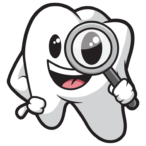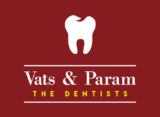TMJ Disorder Care
TMJ disorder care refers to the treatment and management of temporomandibular joint (TMJ) disorders, which are conditions that affect the joint connecting the jawbone to the skull. TMJ disorders can cause a variety of symptoms, such as jaw pain, clicking or popping sounds in the jaw, headaches, and difficulty chewing or speaking. Treatment for TMJ disorders depends on the severity and cause of the condition. Mild cases may improve with self-care techniques, such as applying heat or ice to the affected area, practicing relaxation techniques, and avoiding hard or chewy foods.

The signs and symptoms of TMJ disorders can vary, but common ones that may indicate the need for TMJ disorder care include:
- Jaw pain or tenderness
- Clicking or popping sounds when opening or closing the mouth
- Difficulty or discomfort when chewing or speaking
- Aching pain in or around the ear
- Headaches
- Neck or shoulder pain
- Jaw locking or getting stuck in an open or closed position
- Swelling on the side of the face
- Tooth sensitivity or pain
- Changes in how the upper and lower teeth fit together when biting down.
If you are experiencing any of these symptoms, it is important to seek medical advice.
If there's anything you'd like to know more about, just let us know - we're always happy to provide additional information
Fill the details will get back to you shortly...

A TMJ (temporomandibular joint) disorder is a condition that affects the joint connecting the jawbone to the skull. This disorder can cause a variety of symptoms, such as jaw pain, clicking or popping sounds in the jaw, headaches, and difficulty chewing or speaking.
The causes of TMJ disorders can vary, but some common ones include grinding or clenching of the teeth, injury to the jaw or face, arthritis, and stress.
A dentist can diagnose a TMJ disorder by reviewing your medical history, performing a physical exam, and possibly ordering imaging tests, such as an X-ray or MRI.
Self-care techniques for managing TMJ disorder symptoms may include applying heat or ice to the affected area, practicing relaxation techniques, avoiding hard or chewy foods, and gently stretching or massaging the jaw muscles.
Medical treatments for TMJ disorders may include medications, such as pain relievers or muscle relaxants, oral splints or mouthguards, physical therapy, and surgery in rare cases.
Lifestyle changes, such as eating softer foods, avoiding chewing gum, and practicing good posture, can help reduce stress on the jaw and alleviate TMJ disorder symptoms.
While there is no cure for TMJ disorders, most people can manage their symptoms with self-care techniques, medical treatments, and lifestyle changes. In some cases, symptoms may improve over time without any treatment.
Post-treatment care for TMJ disorder care may include:
- Follow-up appointments: It is important to follow up with the dentist to monitor your progress and make any necessary adjustments to your treatment plan.
- Rest: Resting the jaw as much as possible after treatment can help reduce stress on the joint and promote healing.
- Avoid hard or chewy foods: Eating softer foods and avoiding hard or chewy foods can help reduce stress on the jaw and prevent further damage to the joint.
- Use ice or heat: Applying ice or heat to the affected area can help reduce inflammation and relieve pain.
- Practice good posture: Maintaining good posture can help reduce tension in the muscles surrounding the jaw and prevent further TMJ symptoms.
- Stretching and relaxation exercises: Gentle stretching and relaxation exercises can help improve jaw mobility and reduce tension in the muscles surrounding the jaw.
- Use a mouthguard: If you have been prescribed a mouthguard, be sure to wear it as directed to prevent further damage to the joint.
- Practice stress management techniques: Stress can exacerbate TMJ symptoms, so practicing stress management techniques such as meditation, deep breathing, or yoga can help reduce stress and promote healing.
It is important to follow any specific post-treatment instructions provided by the dentist and to seek medical advice if you experience any new or worsening symptoms. With proper care and management, most people can effectively manage their TMJ disorder symptoms and prevent further damage to the joint.

Working Hours
Monday - Saturday : 10:30 AM - 7:00 PM
Thursday: Holiday
Sunday: 10:30 AM - 1:00 PM
Call Us
+91 91081 24151
+91 99001 14151
Mail Us
happytohelp@vatsandparam.com